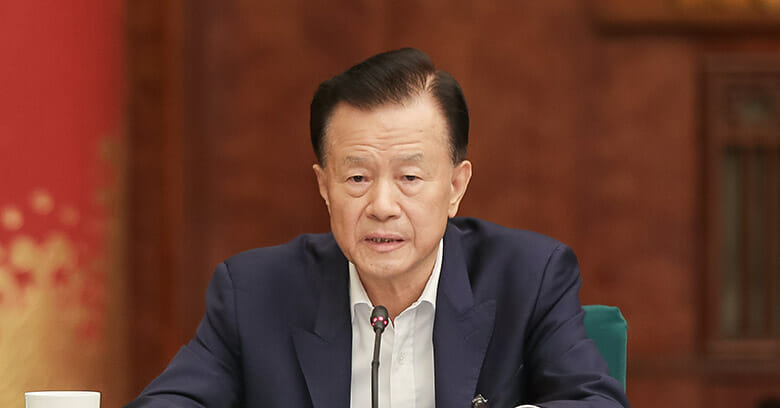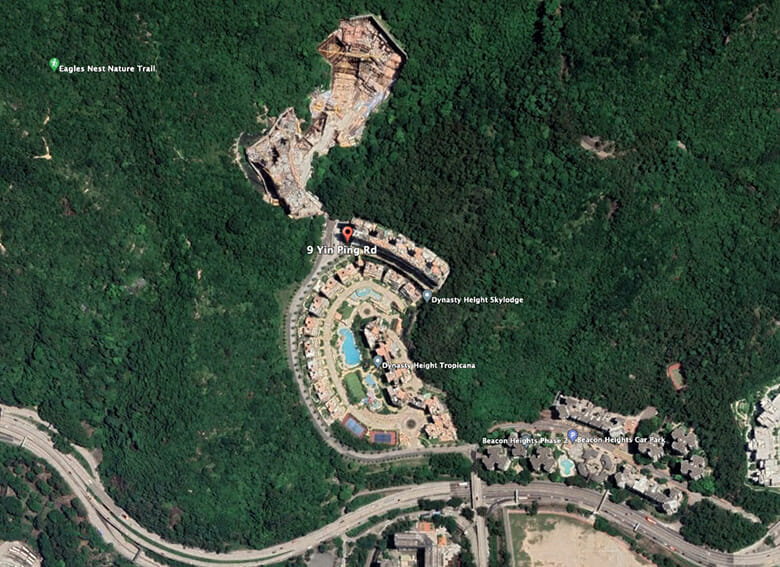
Shimao chairman Xu Rongmao is struggling to pay down debts
After suing troubled mainland builder Shimao Group Holdings in July over an overdue debt linked to a Hong Kong residential project, Singapore’s United Overseas Bank Ltd (UOB) has settled its dispute with the defaulting developer at the same time it moves to buy out full rights to the distressed loan.
Having teamed up with China’s Bank of Communications, Industrial & Commercial Bank of China, HSBC, and Hang Seng Bank in 2017 to loan Shimao HK$10 billion ($1.27 billion) for development of a Tai Wo Ping luxury housing project in Hong Kong’s Kowloon peninsula, UOB now plans to take over the stakes provided by its partners, according to a report by the Hong Kong Economic Journal.
UOB now says that it has resolved its dispute with Shimao, with its potential buyout of the loan providing it with a path to taking ownership of a full or partial stake in the project at 9 Yin Ping Road, a secluded location near a network of hiking trails.
“We can confirm that we have settled with Shimao out of court,” a UOB spokesperson said in an emailed response to Mingtiandi.
Prized Project
According to a writ filed with the Hong Kong High Court dated 12 July, the loan to Shimao was secured by a share charge — a kind of pledge — for Shimao subsidiary Genuine Victory Holding’s 100 percent holding in Adventure Success.

9 Yin Ping Road is located in one of Kowloon’s greener areas
Adventure Success is a wholly-owned Shimao subsidiary that holds and controls the development of the Tai Wo Ping project. The development is valued at about HK$20 billion and Shimao in December managed to extend the maturity for the loan from May this year to July 2023, according to the Hong Kong Economic Journal.
UOB alleged that Shimao’s reallocation of inter-company loans, as well as allotment of shares, to two other Shimao subsidiaries in May led to Genuine Victory’s holding in Adventure Success being reduced to about 5.4 percent from 100 percent. The bank demanded that the reallocation and the allotment of the shares be set aside, among other claims.
Shimao outbid developers including Wheelock Properties, China Overseas, and Cheung Kong Property Holdings Limited (now CK Asset Holdings Limited) to acquire Lot No. 6542 at Yin Ping Road for its Tai Wo Ping luxury housing project for HK$7.02 billion in September 2015, according to a statement by Hong Kong’s Lands Department.
A plan approved by Hong Kong’s building department in 2017 showed the developer planned to build six 18-storey residential buildings and 29 four-storey houses on the site, providing about 1,000 units spanning a gross floor area of 631,900 square feet (58,705 square metres).
The project is being developed in two phases, with the first phase providing about 330 units receiving approval for pre-sale in January. Construction of the project is expected to be completed in December 2023.
Local media reports in February said Shimao Group was seeking to sell a partial stake in the project, however, a deal has yet to be announced.
Fallen Angel
Shimao, whose landmark projects included five-star hotels in Shanghai, was once considered largely immune to the crisis that has engulfed larger peers like China Evergrande Group and Sunac China Holdings. However, its offshore bonds have been trading at distressed levels for months and the company suffered its first-ever default on a public note in July when it missed payment on a $1 billion security.
To remain solvent, the cash-strapped developer has scrambled to raise cash by disposing of assets.
In December, Shimao agreed to sell its 22.5 percent interest in the Grand Victoria project in West Kowloon, Hong Kong to its joint venture partners in the luxury residential development for HK$2.08 billion, booking a loss of HK$770 million.
In January, Shimao agreed to sell the Hyatt on the Bund Hotel in Shanghai to a property investment firm controlled by the city government for RMB 4.5 billion ($707.5 million).
Earlier this month, Shimao agreed to sell its stakes in two Beijing residential projects to red-chip developer China Resources Land for RMB 3.3 billion ($480 million).
Last month, the developer proposed a two-class restructuring plan to offshore creditors to repay $11.8 billion over a period of three to eight years, according to a report by Reuters. It said it will retain the right to dispose of the Tai Wo Ping project and a hotel in Hong Kong’s Tung Chung area with the proceeds to be used to repay debt.
Leave a Reply